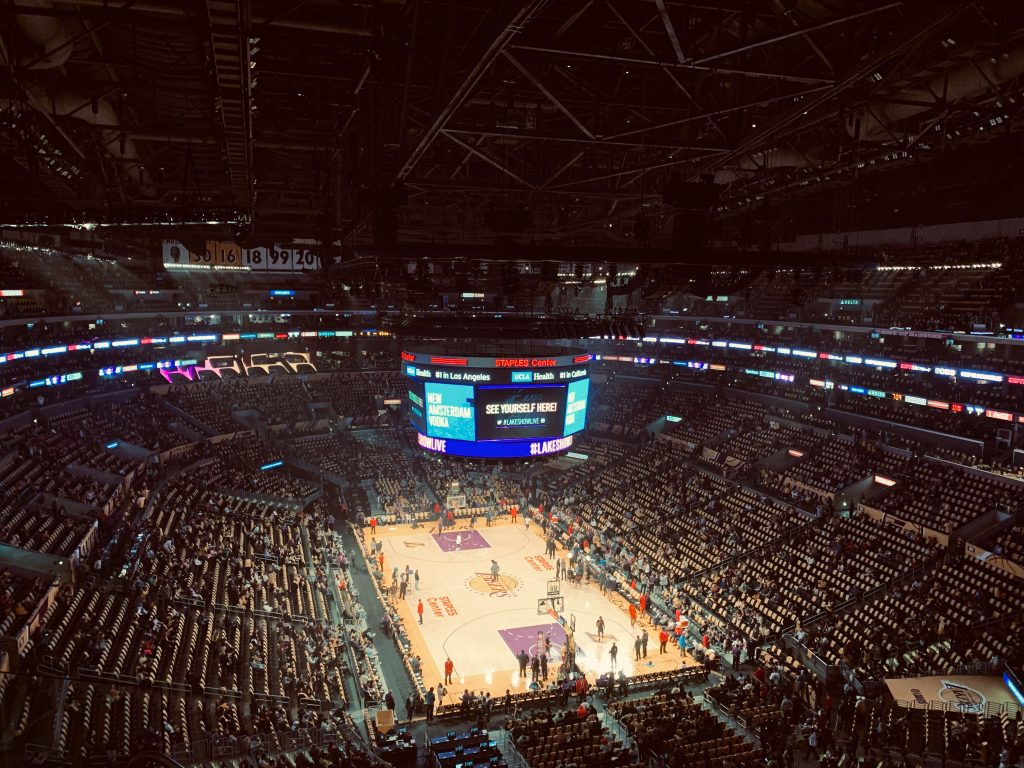By: Eva Spangler, Staff Writer
Photo cutesy of unsplash
Since the Supreme Court overturned federal legislation prohibiting sports betting in Murphy v. NCAA in 2018, the industry has exploded on a massive scale. Sports betting is now legal in 38 states, 27 of which allow online sports betting. It is virtually impossible to watch a sporting event without being bombarded by ads for FanDuel, DraftKings, and other similar companies encouraging viewers to place bets on the game, the spread, or the over/under.[1]
While sports betting is now legal across the country, there are still some lines that cannot be crossed. Professional sports athletes are prohibited from betting on their own leagues or teams. When athletes do cross that line, they face repercussions from the governing body of their league. They can also be charged with wire fraud, money laundering, racketeering, or sports bribery.[2] One of the most prominent, and recent, examples of this can be found in United States v. Eric Earnest.
On October 23, 2025, the United States Attorney’s Office for the Eastern District of New York announced that several former and current NBA players and coaches were indicted in a widespread sports betting and money laundering conspiracy.[3] The conspirators allegedly used information they had because of their position as player or coach, such as a player’s medical status or a player’s intention to alter their game performance, to inform others of how to place bets on five separate occasions from March 2023 to March 2024.[4] This behavior is not only a violation of NBA league policy, which specifically prohibits such conduct, but also a violation of multiple federal laws.
All six instances outlined in the indictment followed roughly the same pattern. To illustrate that pattern, the first occasion involved an NBA game on March 23, 2023, where the Charolette Hornets played the New Orleans Pelicans.[5] Prior to the game, Hornet’s player Terry Rozier informed Deniro Laster that he planned to prematurely remove himself from the game in the first quarter due to injury and not return to play. Rozier provided this information to Laster with the intent to enable Laster to make bets based on the information. The public was unaware of Rozier’s intention to exit the game.[6]
Laster then sold this information to multiple individuals, enabling them to place fraudulent wagers based on the non-public information. Those individuals placed multiple bets totaling over $60,000 on Rozier’s unders, that he would statistically perform worse than expected in the game against the Pelicans.[7] During said game, Rozier did remove himself, and his stat line was well under the averages set by sports books that determined Rozier’s unders and overs. The profit from these illegal bets was tens of thousands of dollars. This pattern was repeated, albeit with different actors and different NBA games, for each instance listed in the indictment.[8]
While the federal indictment only lists five occasions where the sharing of non-public information led to illegal bets, there is no telling how many times this has happened in the NBA or other professional sports leagues.
The real question that this indictment has left avid sports betters with is what it means for the future of legal sports betting. Based on the industry’s rapid expansion, it seems unlikely that the Murphy v. NCAA decision will be overturned. However, this indictment makes it very clear that something needs to change to protect the integrity of professional sports and legal betting. While what this change looks like is somewhat of a mystery. One large step in the right direction would be increased collaboration between league officials and law enforcement regarding illegal betting. This would allow officials to clamp down on illegal betting before it reaches the massive level it did in United States v. Eric Ernest.
[1] https://pluralpolicy.com/blog/sports-betting-laws/
[2] https://www.kenneylegaldefense.us/blog/sports-betting-illegal-gambling/#:~:text=The%20conduct%20involves%20financial%20transactions,or%20promoting%20illegal%20offshore%20sportsbooks.
[3] https://www.justice.gov/usao-edny/pr/current-and-former-national-basketball-association-players-and-four-other-individuals
[4] Id.
[5] Id.
[6] Id.
[7] Id.
[8] Id.
